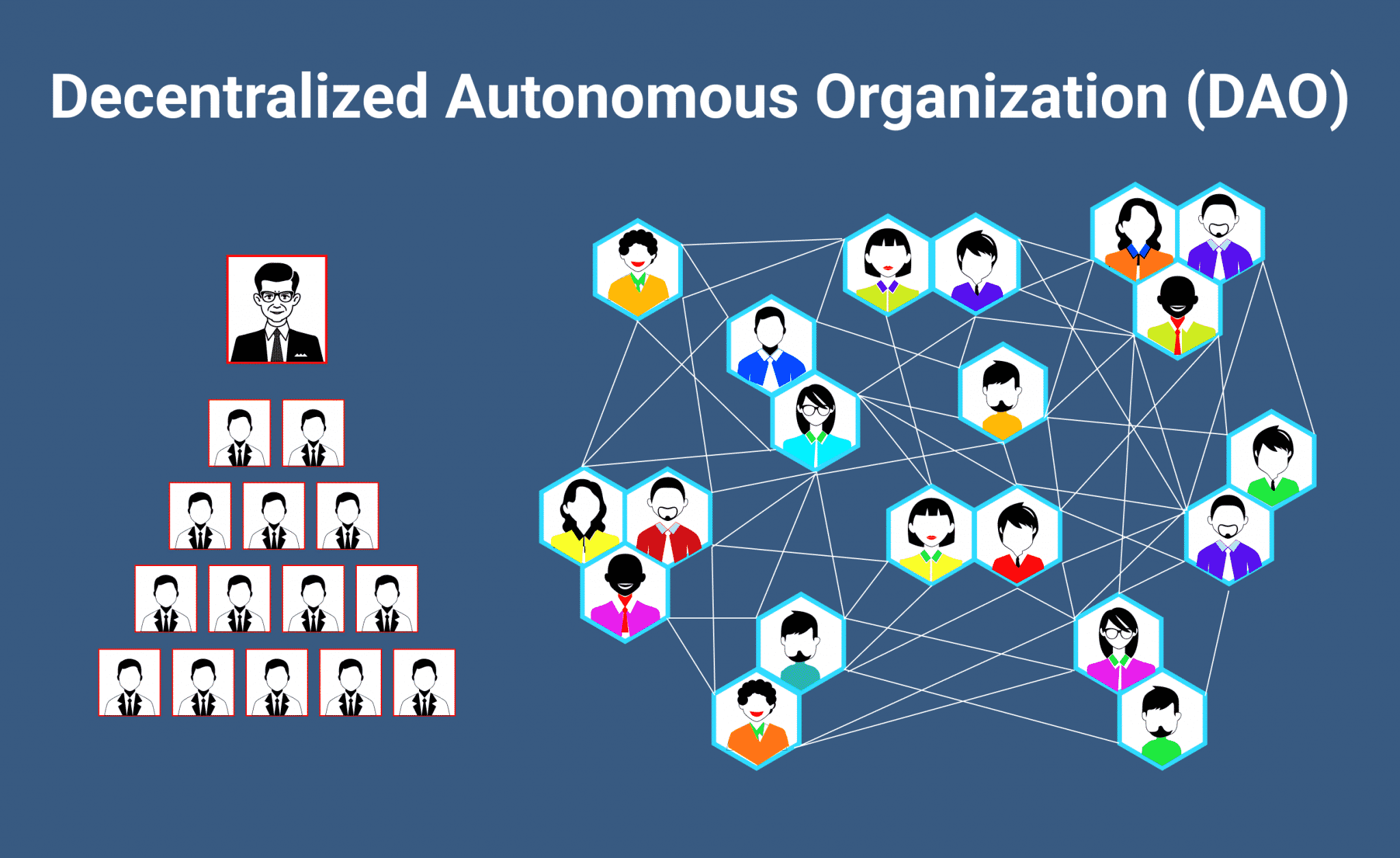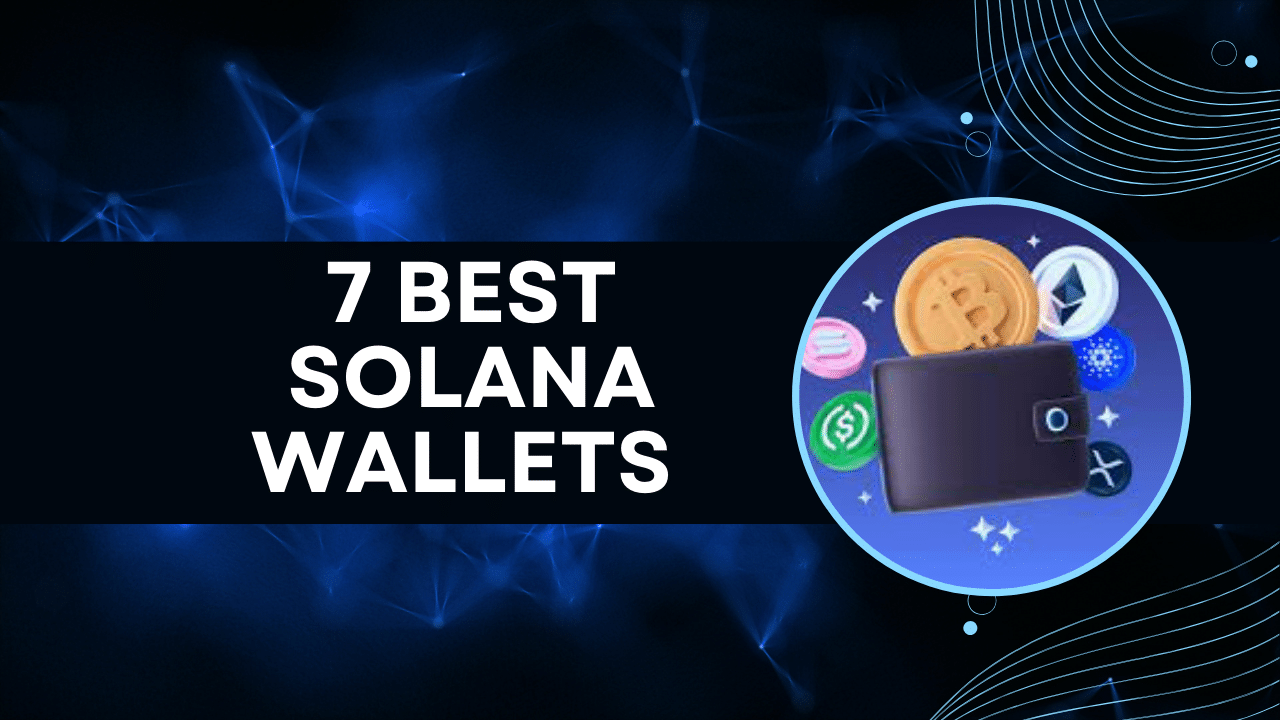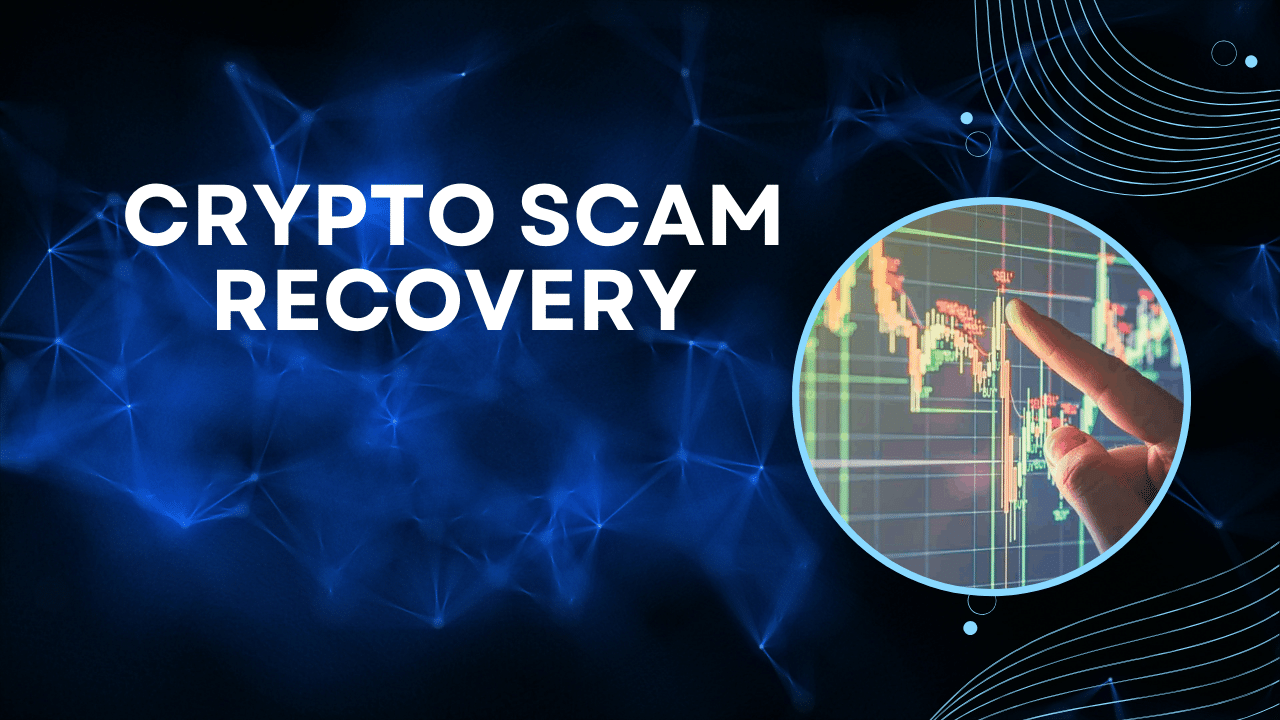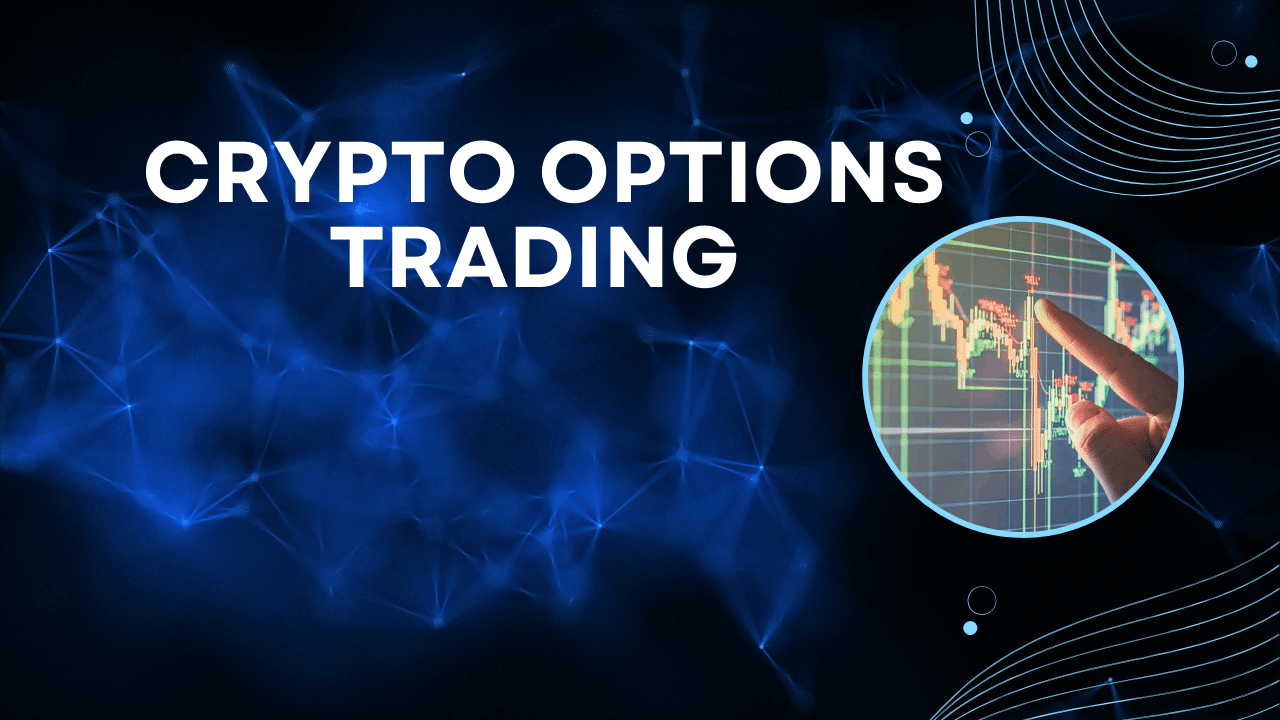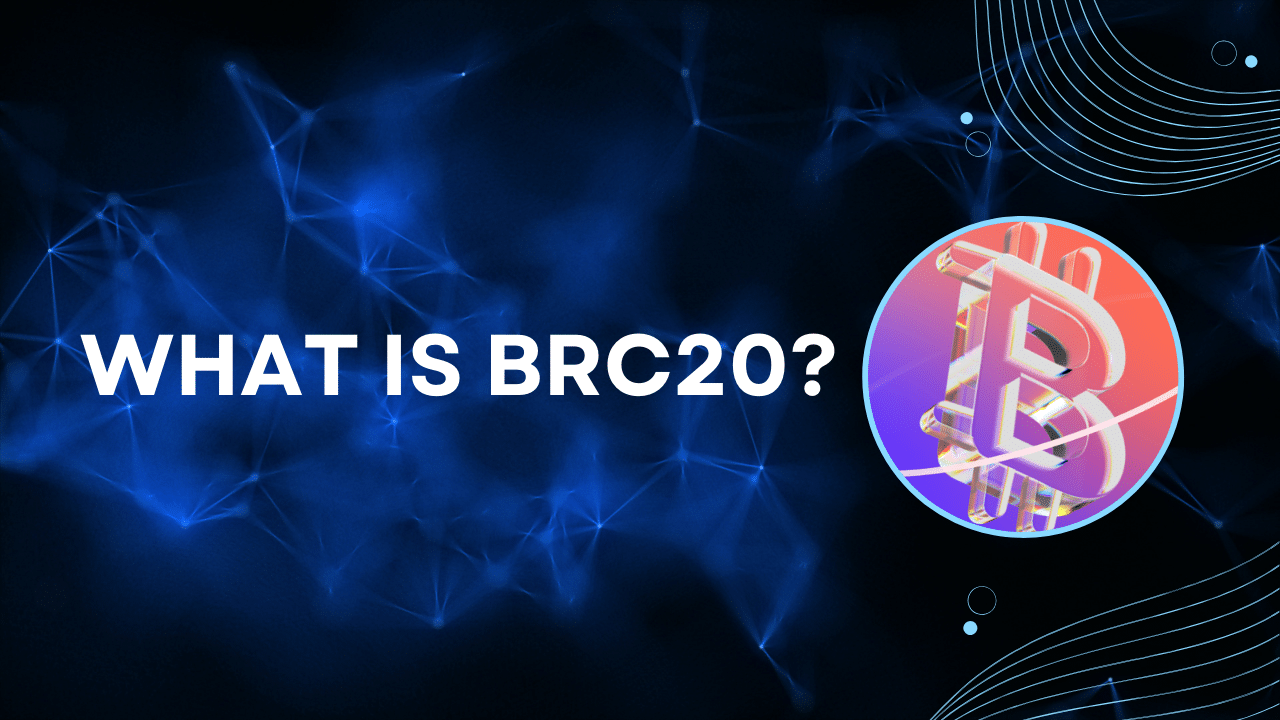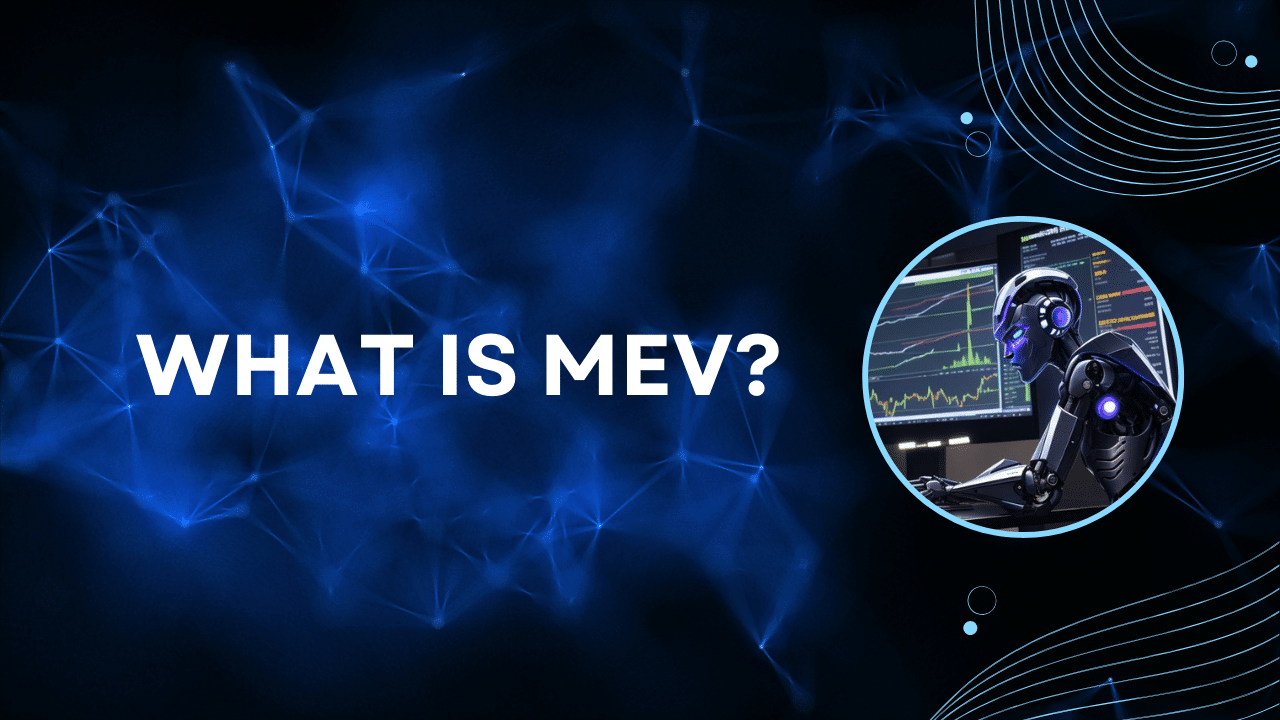Contents
Decentralized Autonomous Organization (DAO)
So what’s cooking with DAOs or Decentralized Autonomous Organizations these days?
Cooper Turley, an investor and builder of several popular DAOs, including Friends with Benefits, defined DAOs as “an internet community with a shared bank account.”
DAOs are mostly enabled by the Ethereum blockchain, which provides a way to create smart contracts for digital assets using blockchain technology.
The specific governing rules and structure of any DAO are determined by the group and its goals.
What distinguishes a DAO from a typical organization is there is no need for any formal management structure. It has no directors or officers. Instead, it runs on rules encoded as computer programs called smart contracts.
To become a part of a DAO you will need to buy tokens of that specific DAO which will determine your stakes in the organization.
The concept behind DAOs was proposed in 2013 by Vitalik Buterin, who described it as “a Decentralized Organized Company that runs without any human involvement under the control of an incorruptible set of business rules”.
It provides a way to form governance through programmatic functions and contractual relationships among members, treating network participants equally and transparently.
The goal is to create a way for organizational decisions to be made with regard to the needs and desires of its shareholders, without being slowed down by the diversified opinions and interests associated with people working within a traditional framework.
DAOs are currently on their way to mainstream adoption and the recent institutional investment in DAOs has been a huge indicator of its potential to compete with traditional businesses and organizations.
Despite The DAO scandal, which occured due to a human error and raised serious concerns regarding DAOs, Turley predicts that; “I believe that the next Facebook-like company will be formed as a DAO rather than an LLC.”
DAOs can be used for all sorts of things, from investing in new projects to borrowing money without having any intermediaries. For instance, a DAO could accept donations from anyone around the world and use them however members decide is best!
That’s the core of how DAOs operate and will soon be able to do more than just handle financial transactions. The future of this technology is bright and it’s only a matter of time before we see DAO-based applications in almost every industry.
So how do DAOs operate? Can we differentiate them into types? And what more is there to learn about them?
This article encompasses all the major key points related to DAOs that every blockchain enthusiast must know:
Decentralized Autonomous Organization (DAO)
Contents
What are DAOs?
DAOs are a new and exciting way to collaborate on projects that will change the world. They’re effective and safe – even if you can’t meet in person!
Consider them as a type of internet-native firm that is owned and run by its members. They have treasuries that no one has the power to access without group approval. Proposals and voting are used to ensure that everyone in the company can participate in the decision-making process.
This means that decisions within the company/organization are determined by everyone involved. Rather than having one single leader or CEO, all of those working with the DAO co-operate with each other to reach a decision – every little decision is decided upon by all of those who own DAO tokens. You may buy DAO tokens in order to join a DAO.
DAOs are organizations operating on the blockchain, based on predetermined rules and regulations.
There’s no way for a self-serving CEO to order expenditures on his or her own terms, and no room for a dodgy CFO to falsify records because everything is transparent, and spending rules are written into the DAO’s smart contract.
Types of DAOs
DAOs generally fall into two different types:
- Manages Open-source blockchain-based projects
- Makes investments on behalf of investors
The first type of DAO is designed to manage an open-source, blockchain-based project together. These groups can act similarly or like LLCs that invest in startups.
The second type makes investments on behalf of investors who want a greater return than they would receive from simply holding stock in any given company; these organizations might resemble venture capital firms more than anything else.
PleasrDAOs is a good example of the second type, because their goal isn’t necessarily just creating new projects but rather purchasing them outright with tokens representing an ownership interest.
Today, we have hundreds of DAOs that are currently operating, but only a couple of them have been known to make a significant impact within the industry.
All of these DAOs are operating based on a predetermined set of rules and objectives. Meaning that the owners of DAOs have the freedom to define the type of their DAO on their own terms.
We’ve compiled a list of popular DAOs that are built with similar standards but are different from one another based on their key objectives.
| DAO | Type |
| PleasrDAO | Collects various NFTs and invests in other assets. |
| HerStory | Collects and funds projects by Black women and non-binary artists. |
| Komorebi Collective | Funds women and non-binary crypto founders. |
| Friends with Benefits | An exclusive social club that you pay to enter. |
| MetaCartel Venture | For-profit business that invests in early-stage decentralized applications. |
How do DAOs Operate?
The following are the essential components of a fully operational DAO:
- Set of rules to operate
- Funding like tokens to incentivize members
- Enable voting on policy
- Well-designed structure in place to configure the organization
A DAO’s smart contract is its fundamental element.
The contract regulates the organization and keeps the treasury safe. After the contract is deployed on Ethereum, you need a vote to change its parameters, rather than one person making changes. It will fail if anyone tries to do something prohibited by the protocol in the code.
As the treasury is defined by the smart contract, no one may spend it without approval from the group. This eliminates the need for a central authority in DAOs.
Instead, DAO’s members have control over any proposals submitted by its members. This is because token holders can vote on decisions and changes to the rules of a DAO.
Anyone can join or leave a given DAO at any time by transferring or withdrawing their tokens.
These tokens give them voting rights which are determined by each organization’s governing code. They often require a minimum amount of tokens held in a member’s wallet or controlled by a member’s smart contract.
Instead of having to debate and vote on everything separately, members of a DAO collaborate together and payments are authorized automatically when the majority votes pass.
All of this is possible as soon as the DAO’s smart contract goes live on Ethereum. You can trust the integrity of your DAO and feel secure that it is not being tampered with because everything is public!
Steps to Launch a DAO
Launching a DAO involves three key steps:
- Smart Contract Creation
- Funding
- Deployment
Smart Contract Creation
To create a DAO, you must first write the code. This is generally done in Solidity, which is often referred to as “ethereum’s javascript.” The code should create the architecture of what will eventually become a DAO.
For this, you will need a developer or a group of developers because writing the code to create the smart contract behind the DAO is far from a piece of cake.
The developers must thoroughly test the contract to guarantee that they cover all relevant information. This is absolutely critical, because once the contract goes live on the blockchain, it cannot be modified.
Funding
The DAO needs some way to raise funds and also determine how it will be governed. In most cases, tokens are sold so that holders can vote on decisions.
For this you can organize fundraisers, get the word rolling in your network, or launch a marketing campaign which can also help you fund your DAO.
Once you have secured your funding, you’ll need a crypto wallet where you can store and manage your funds.
Deployment
Now that you have the funds, you’re ready to deploy your smart contract.
You can do this by copying and pasting the contents of your contract into a browser based ethereum wallet of your choice.
Pasting a description and bytecode is required for successful deployment, so make sure you don’t miss out on it.
You should now see your DAO contract live on the ethereum blockchain, funded with ETH and ready to start raising pledges, and accepting votes from members.
The creators and operators who wrote these smart contracts no longer control it. From this point on, the future of DAO is in its stakeholder’s hands.
Why DAOs Should Exist
The answer is simple: because it will solve real problems that we encounter in the world. But how and why?
A Decentralized Autonomous Organization (DAO) is a decentralized and open (yet secure) platform built on top of blockchain for managing and executing business goals with the least possible bureaucracy.
This leads to substantial cost-cutting while maintaining full transparency by utilizing smart contracts.
The freedom of investors to join or leave at any time after following the proper protocols ensures the decentralization of power. This, in turn, minimizes human errors or corruption due to lack of control over resources.
In traditional organizations, the decision making process usually involves a lot of paperwork rules/regulations. With DAOs, it’s completely digitalized and automated.
As there is no central authority or person responsible for certain actions, the process is very transparent; hence trust between all participants increases.
No need to waste time on meetings when everything can be done in seconds with a few keystrokes!
These are some of the best reasons why you should use decentralized governance instead of centralized:
- Easiest way to get insight about how your team feels about an issue – by voting with gas expenditure for every vote cast. While in traditional organizations getting everyone’s opinion at the same time is difficult, in decentralized networks this can be done easily.
- Transparency – anyone can read the information stored in the network, anyone can check how many tokens each member holds, and check if all members follow the rules.
- Low costs, high trust – smart contracts make sure that everyone is playing by the same set of rules. There is no need for third party verification, thus less bureaucracy and more savings.
- Faster decision making – voting mechanisms can take up to a few hours in traditional organizations, while it only takes seconds/minutes in DAO.
Less administration costs, higher productivity, less paperwork, less bureaucracy, alongside greater transparency & faster decision making – what else can you ask for?
If all this sounds good to you, here’s a list of the most exciting DAOs currently in existence:
| DAOs | What are they doing? |
| Digix Global | Building an infrastructure on top of Ethereum blockchain that allows users to tokenize gold bars into DigixDAO Tokens (DGX). |
| Colony | Provides decentralized tools for anyone looking to incorporate shared decision-making into their organizations by allowing people from around the world to collaborate efficiently and securely at scale.
The company aims to empower open organizations and is now running its own instance of Colony on the Ethereum public blockchain. |
| Aragon (ANT) | Aragon is a decentralized management platform that makes it easy and efficient for organizations to operate without borders or intermediaries. |
| Ujo Music | Aims to provide a transparent, interoperable, paid content management system for the music industry based on Ethereum . Inspired by Ethereum’s potential to enable new business models, the founders of Ujo Music started this project with the intention of building a fair trade music sharing ecosystem. |
| Boardroom | Allows users to interact securely and seamlessly with their preferred smart contract -aware web app through mobile/desktop apps while retaining full control over their private keys.
For example , you can make an agreement about who should pay how much from your company budget using the Boardroom dApp. It runs on Ethereum and is free for everyone using it. |
| Stake Land | Stake Land is a blockchain based new economy project, focusing on the real estate industry. There are some significant differences between Stake Land and traditional companies:
Tokens of Stake Land are used as stakes which allow holders to receive dividends from the company’s profits. Token value grows if the company performs well, i.e., growth in business leads to a rise in token price, making them more attractive to other investors who want to hold their positions. That fact encourages them not only to make good decisions but also to form a strong team. |
Challenges Expected
While DAOs come with a promising future, there are some challenges that need to be addressed before we can expect their mainstream adoption.
The biggest challenge faced by DAOs is whether they can function securely in their early stages while being open-source for anyone to participate in.
Another major challenge is the fact that you have to understand how blockchains and smart contracts work to be able to participate.
Some claim DAO as an example of how Ethereum will evolve into a world computer.
The real question is whether Ethereum can provide the computing power necessary for those algorithms and code to function once it has been put into practice (efficiently).
Today, companies like Microsoft and IBM who offer services over blockchain networks allow users to create their own customized rules and algorithms. This allows for flexibility, but at the same time, leaves room for human error and greed – as in the case of The DAO Scandal.
It would seem that we are still far off from creating a program or algorithm with no human intervention whatsoever.
Though many people are still wary due to these challenges, DAOs are still revolutionary in that they allow people from around the world to invest and participate in a variety of opportunities without the risk associated with traditional investing.
The success of a DAO depends on whether or not Ethereum can handle all of the computing power needed for these algorithms and code to function.
Some claim that in order for blockchains like Ethereum to become an efficient decentralized world computer, they will need more processing power than that currently provided by Microsoft’s Azure cloud service.
At this point in time, many agree that Ethereum cannot support such demands, but they are developing ways to fix this problem.
For now, it is up to you, the reader, to decide whether or not DAOs are right for you and if blockchain technology is capable of bringing an entire decentralized world into reality.
Story of The DAO!
The DAO was a decentralized autonomous organization created on the Ethereum blockchain in 2016.
A token sale allowed The DAO to raise over $150 million USD worth of ether (ETH) from stakeholders during May 2016, making it the most successful crowdfunding campaign of its time and opening up a new debate about legal regulations of ICOs.
On June 17, 2016, an unknown actor used this lack of oversight to drain approximately one-third of The DAO’s funds into a “child DAO” controlled by them. This is commonly referred to as the biggest heist in blockchain history.
The reason for this attack was due to vulnerabilities in the code base of The DAO. Some white hat hackers attempted to secure some of the funds by draining The DAO’s token pool before the hacker could, which led to a dispute on how to return the Ether taken from The DAO and its child DAOs to their original owners.
On July 25, 2016, Ethereum developers proposed a hard fork in this chain that would have reversed the effects of the heist, allowing The DAO to keep its ETH as a separate token.
The community was divided over the hard fork proposal: some users wanted to restore The DAO’s ETH so they could withdraw it from its child DAOs to exchanges where they would be sold.
Others were against the hard fork because it went against the immutability that is a key feature of blockchains.
This led to two chains: Ethereum and Ethereum Classic.
The hard fork created a new token called “Ether” (ETH).
A few days later, on July 23, 2016, Ethereum Classic was created as an alternative cryptocurrency with the same capabilities as ETH but also preserving the immutability of the blockchain’s history. This currency is now traded globally and can be bought or sold through several exchanges.
Future of DAOs
The future of DAOs is the future of businesses! A DAO, or decentralized autonomous organization will be owned by all those who join it through voting rights – no matter what country they’re from!
This revolutionary new form has many analysts saying that we may even see some traditional companies replaced by these collective organizations soon enough, as the world makes the shift to Web 3.0.
And that’s because with DAOs, there’s less risk involved when everything can be done online, without any single person needing special status or privileged information.
Due to its revolutionary potential, DAOs are expected to eventually become the norm since they will help construct decentralized versions of well-known apps like Uber or Airbnb.
As a matter of fact, many individuals in the community are creating decentralized alternatives to these popular apps, and others.
Cooper Turley said, “I think DAOs are the new LLCs and I think in five years, companies won’t have equity anymore. They’ll have tokens, and they’ll be represented as DAOs.”
Wrapping Up!
DAOs have the potential to revolutionize how organizations operate and could very well be the future of governance.
While there are some challenges that need to be addressed, we believe in the power of DAOs and their ability to create a more democratic, transparent, and equitable world.
If you want to learn more about blockchain technology or get started on investing in cryptocurrencies then sign up for our Top pro courses.
